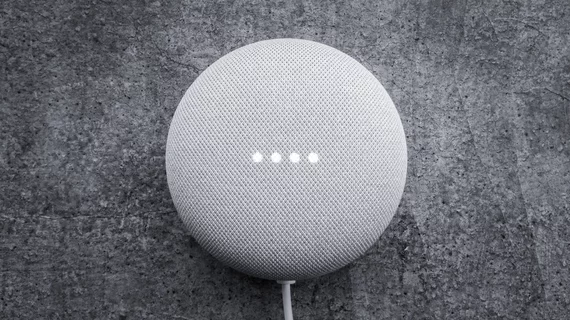Industry Watcher’s Digest
- Want to give fuller attention to patients? Maybe start by ignoring computer screens (with a little help from AI). Healthcare AI startup Augmedix of San Francisco is partnering with for-profit, 186-hospital HCA Healthcare to pilot AI-enabled ambient clinical documentation in acute-care settings. Augmedix’s technology combines device-based voice recognition with natural language processing to automatically transcribe spoken communications between patients and their doctors or nurses. Clinicians can check the text for accuracy before it becomes findable in the EHR as clinician notes. HCA is investing in Augmedix while using its products in the emergency rooms of two hospitals and planning to add two more sites soon.
- FDA clears AI stroke detector. RapidAI (San Mateo, Calif.) has won the Food and Drug Administration’s blessing to sell AI software that speeds diagnosis of acute stroke in patients scanned with plain (contrast-free) CT imaging. The newly approved product adds to RapidAI’s suite of AI offerings for stroke and trauma care. It’s specifically geared to detect intracranial hemorrhage and large vessel occlusion when those conditions are suspected. Announcement here.
- Aspirational AI across the Pond. The U.K. has dropped a cool 100 million pounds—around $125 million—to launch a taskforce charged with advancing foundation model AI across various industries. Not least among these is healthcare. The move was announced April 24 by Prime Minister Rishi Sunak and Technology Secretary Michelle Donelan. Donelan says the considerable sum will help to “make our ambitions for an AI-enabled country a reality and keep the U.K. at the front of the pack in this emerging technology.” Read the whole thing.
- AI excels at sniffing out pulmonary embolisms on CT scans obtained for other reasons. In research using commercially available software marketed by Aidoc of Tel Aviv, an algorithm not only diagnosed such “incidental” embolisms with high diagnostic accuracy but also markedly quickened turnaround times thanks to intelligent worklist prioritization. The study is available for free in Radiology: Cardiothoracic Imaging, and Radiology Business has posted a news summary.
- Parkview Health subscribes to Sectra’s One Cloud service. The health system, which serves more than 1.3 million people in northeast Indiana and northwest Ohio, took the step to facilitate image management as volumes grow exponentially and data security increases in criticality, according to an announcement Sectra posted April 20. The company says the software will operate in Microsoft Azure with Sectra “taking all responsibility for required infrastructure” under a managed services agreement. The parties signed the contract in March. It calls for the implementation to focus on radiology, breast imaging, advanced visualization and vendor-neutral archive (VNA) capabilities. Full announcement here.

